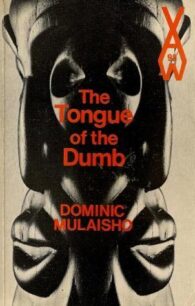The story centers on the protagonist, Chanda, a mute boy who serves as a symbol of the voiceless in society. His muteness becomes a central metaphor for the struggle of the oppressed and marginalized to communicate in a world that often ignores their needs and voices.
Through Chanda’s journey, Mulaisho delves into themes of power, superstition, and resistance to change, as the village faces growing external pressures from colonial forces and the introduction of Christianity. The novel is a poignant commentary on the impact of colonialism and the tension between progress and tradition, with Chanda’s silence representing both personal and collective struggles to be heard in a rapidly changing world. “Tongue of the Dumb” stands out for its rich cultural detail and its exploration of human resilience in the face of overwhelming societal transformation.

